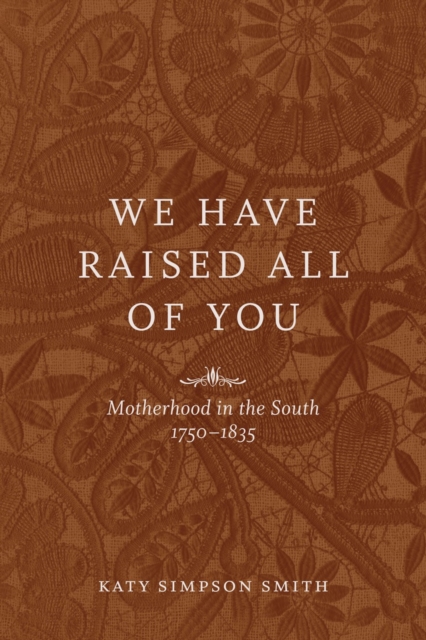
We Have Raised All of You : Motherhood in the South, 1750-1835 PDF
by Katy Simpson Smith
Description
White, black, and Native American women in the early South often viewed motherhood as a composite of roles, ranging from teacher and nurse to farmer and politician. Within a multicultural landscape, mothers drew advice and consolation from female networks, broader intellectual currents, and an understanding of their own multifaceted identities to devise their own standards for child rearing. In this way, by constructing, interpreting, and defending their roles as parents, women in the South maintained a certain degree of control over their own and their children's lives. Focusing on Virginia and the Carolinas from 1750 to 1835, Katy Simpson Smith's study examines these maternal practices to reveal the ways in which diverse groups of women struggled to create empowered identities in the early South.
We Have Raised All of You contributes to a wide variety of historical conversations by affirming the necessity of multicultural -- not simply biracial -- studies of the American South. Its equally weighted analysis of white, black, and Native American women sets it distinctly apart from other work. Smith shows that while women from different backgrounds shared similar experiences within the trajectory of motherhood, no universal model holds up under scrutiny. Most importantly, this book suggests that parenthood provided women with some power within their often-circumscribed lives. Alternately restricted, oppressed, belittled, and enslaved, women sought to embrace an identity that would give them some sense of self-respect and self-worth. The rich and varied roles that mothers inherited, Smith shows, afforded women this empowering identity.
Information
-
Download - Immediately Available
- Format:PDF
- Pages:360 pages
- Publisher:LSU Press
- Publication Date:04/11/2013
- Category:
- ISBN:9780807152249
Other Formats
- Hardback from £33.95
- EPUB from £13.97
- Paperback / softback from £25.95
Information
-
Download - Immediately Available
- Format:PDF
- Pages:360 pages
- Publisher:LSU Press
- Publication Date:04/11/2013
- Category:
- ISBN:9780807152249






